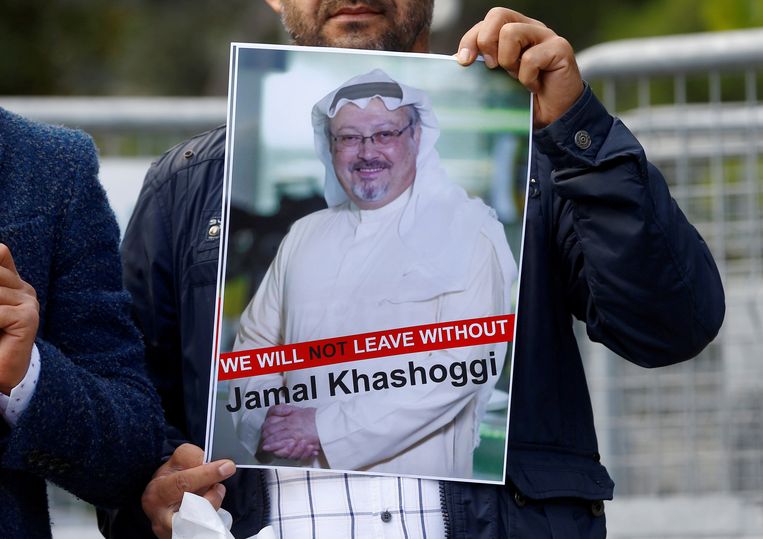Turkish authorities say they will present evidence today, including video footage from security cameras at the Saudi consulate in Istanbul, showing that the critical Sudanese journalist Jamal Khashoggi (59) was killed in the Saudi consulate.
Zijn body would then possibly be smuggled into a black car, the diplomatic post and left in an unknown place.
Police officers told Anadolu state news agency that last Tuesday, on the same day that Khashoggi visited the consulate and disappeared without a trace, a group of 15 Saudis arrived in Istanbul and went to the consulate. Shortly thereafter they left Istanbul again. They travelled to Turkey with two planes.
Murdered at consulate
Yesterday evening let Turkish authorities know that Khashoggi is dead. He would have been killed when he visited the Saudi consulate in Istanbul to collect documents for the upcoming marriage with his Turkish fiancée, Hatice Cengiz. He was waiting outside for him. That is what two reliable sources have said to the Reuters news agency.
“We believe that the murder was premeditated and the corpse was then removed from the consulate,” said one of the spokesmen.
On Friday, the Saudi Crown Prince Mohammed bin Salman said in an interview with Reuters that the Turkish police were allowed to visit the Saudi consulate to see if Khashoggi was still there. “They can do what they want,” he said. The Saudi authorities said that he had left again shortly after his visit. That was contradicted by his fiancee.
Criticism of crown prince
Khashoggi is a prominent journalist with 1.68 million followers on Twitter, who was especially critical of the policy of crown prince Mohammed bin Salman. His reforms in the highly conservative Islamic kingdom are praised in Western capitals.
On the orders of Salman, however, hundreds of Saudis were also arrested and put behind bars, because they would endanger ‘national security’. Among the victims of the arrest waves are well-known entrepreneurs, religious leaders, intellectuals, and even female activists who stand up for more women’s rights.
The royal family probably regarded the disappeared journalist Khashoggi as one of her most dangerous critics, observers said. He could not be dismissed as a professional dissident. For decades he was a member of the highest circles in the kingdom and was a counsellor to a former director of the intelligence service.
In exile
After the police had arrested several of his friends, his column had been cancelled by the newspaper al-Hayat, and had been warned to stop tweeting, Khashoggi left Saudi Arabia. He chose to live in exile in the United States. There he wrote opinion pieces for the Washington Post. He was also a regular guest at Arab and Western TV channels to comment on developments in his country.
“I have left my home, my family and my job and I am raising my voice,” he wrote in September 2017. “Doing something different would betray those who languish in prison. I can speak while so many cannot.”
Out of solidarity and protest against the disappearance of Khashoggi, the Washington Post published a blank column on the spot where otherwise the contribution of the Saudi journalist should have been. The head above was ‘A missing voice’.
